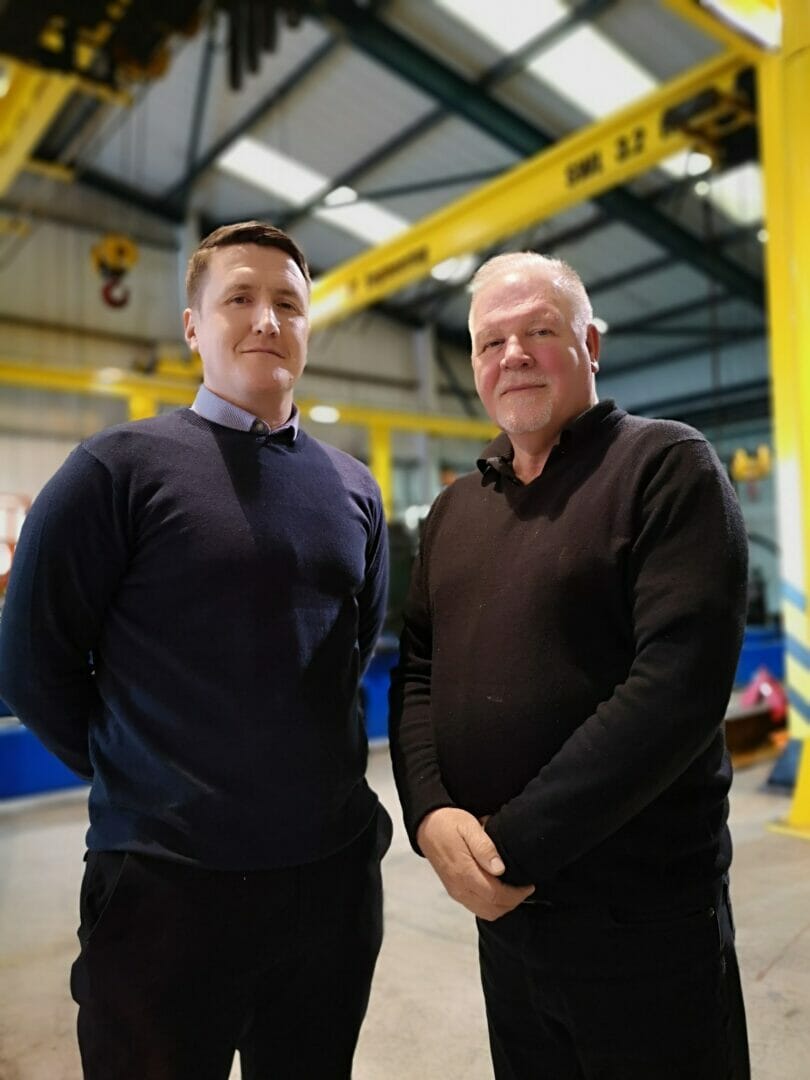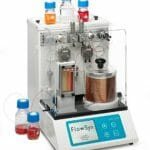Nine pioneering companies based in the North West are the first in the country to benefit from a government programme designed to boost UK manufacturing productivity and growth through the adoption of digital technology.
Based in Greater Manchester, Cheshire, Lancashire and the Liverpool City Region, the nine companies are set to introduce 12 advanced manufacturing methods including Artificial Intelligence (AI), Industrial Internet of Things (IIoT), 3D-printing and robotics.
The businesses include a number of engineering firms including Graham Engineering Ltd (GEL), based in Nelson, Lancashire. GEL specialises in the welding and fabrication of complex stainless steel solutions for the nuclear, aerospace, health and security sectors.
The family-owned firm intends to increase their market share in these sectors by becoming more competitive and increasing flexibility in its manufacturing methods, while maintaining the highest quality of product.
By investing in new digital technology to integrate the software to complement its high-tech equipment, GEL will further streamline their existing workflow through the factory, from order to shipping.
In addition, GEL have identified future investment for further digital technology such as machine vision and AI to improve the rigorous, highly-skilled but labour-intensive inspection processes.
Paul Ashworth, IT Manager at Graham Engineering Ltd, said: “As a forward-thinking business we will speed up the process of taking customers’ requirements through from design to manufacture and delivery by upgrading and integrating disparate technologies.
“This will generate a smoother flow of operations in-house, and with both our customers and our supply chain.
“Efficient and systematic working processes with reduced scrappage will lead to increased profitability enabling the company to remain competitive across their various market sectors and provide added leverage into new markets.
“The next generation of engineers expect and demand cutting-edge technologies in their workplace. This investment will help to embed the perception of our organisation as a high-tech, innovative company with a vision for growth through sustained quality and diversification.”
Another Lancashire-based company to secure Made Smarter funding is T&R Precision Engineering, based in Foulridge, Colne. The business produces parts for the aerospace sector and wants to use digital technology such as IIoT, automation, systems integration, data analytics and cloud, to apply its innovative ideas and intellectual property to current off-the-shelf machinery.
T&R believes the move will massively increase productivity and efficiency, upskill its workforce, and firm up its plans to expand its manufacturing space by 10,000 sq ft.
It predicts the investment will see a 33% revenue growth over the next three years, mostly from export sales to the USA.
A reduction in the number of machines required to manufacture specific components will cut power consumption and hence carbon footprint, as well as reduce scrappage rates.
Tim Maddison, Managing Director at T&R Precision Engineering, said: “This project will lead to a critical advancement in our machining capability.
“New machining methods and component handling along with the integration of IT software will push the boundaries of our current manufacturing thinking. The up-skilling of our engineering, operations and quality personnel will be essential to take advantage of the technology advancements we need to implement to secure future extended contracts.”
In the Liverpool City Region DT Engineering North West Ltd, a specialist manufacturer of crane and lifting equipment based in Widnes, has successfully secured matched funding from Made Smarter. They want to incorporate digital technologies into heavy engineering environments to ensure the safe operation of potentially dangerous equipment.
Tom Coyle, Managing Director, said the project with Made Smarter will create new jobs and boost sales opportunities.
“Success of this project will completely transform our business, allowing the company to grow and become far more profitable as we anticipate the integration of digital technologies and systems to complement our current core business,” he said.
Another Liverpool business which has been awarded funding is Abbey Group, based in Knowsley. Abbey provides a broad range of engineering solutions to UK industry in the automotive, rail, security, warehousing, energy and structural steel sectors.
It wants to invest in digital technologies – system integration, data acquisition and AI – to introduce real-time machine monitoring on the factory floor to capture live data and report on potential manufacturing efficiencies and costs.
Chris Jones, Managing Director of Abbey Group, said: “Investing in digital technologies will truly transform our current business, increasing profitability – while remaining highly competitive – and productivity, while allowing us to develop innovative products in-house that will drive growth and sustainability and facilitate further diversification of our product portfolio.”
The four engineering SMEs are part of the first tranche of firms to grasp the opportunity offered by the Made Smarter pilot scheme which aims to engage with over 3,000 manufacturing SMEs in the North West and increase the region’s GVA by up to £115M.
Up to 600 North West firms will also qualify for more in-depth support including mentoring from senior industry figures, a leadership & management programme specifically designed to support leaders to implement digital change and grants towards the cost of new equipment.
Made Smarter is an investment between government and industry which includes match funding opportunities and the provision of dedicated technical and business support for SMEs adopting digital technology, to support advanced manufacturing. The initiative is the result of the Made Smarter Commission – a partnership between the Department for Business, Energy & Industrial Strategy (BEIS) and the private sector.
Co-Chaired by Business Secretary Greg Clark, and CEO of Siemens Juergen Maier, the Commission includes representatives from 17 leading UK manufacturers, technology companies and business representative bodies.
Donna Edwards, Director of the Made Smarter North West pilot, said: “I am delighted that the Made Smarter pilot has now supported the first successful SME applications including these four engineering companies.
“Working with business we have found that they are enthusiastic about the benefits of adopting new digital technology. Often, they need funding support, but also the specialist advice and insight to help them select the right approach for their business.
“This is exactly how Made Smarter can and is helping businesses across the region.
“It’s been interesting to see the range of businesses and sub-sectors the successful applicants have come from and the technologies they have selected.
“Made Smarter is relevant for any North West SMEs employing less than 250 staff who make, create, manufacture or engineer and I urge local businesses not to miss this opportunity. Register today for a fully-funded audit of your operations.”





